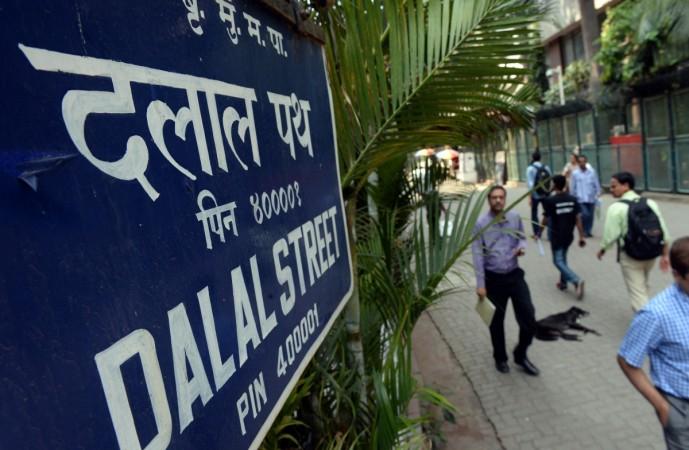
Does the recent rally in the stock market with the country's benchmark indices riding new highs hold out promise for the investors? At the first glance, the upward surge in the indices with NSE Nifty touching a record high of 11,172.20 and the BSE Sensex crossing the 37,000 mark, would look like ache din for investors.
But a closer look the returns on investment would reveal the other not so buoyant mood among investors as many scrips in 30-member BSE index gave negative returns. Analysts also point out that India's total market-capitalisation (m-cap) has fallen close to 30 per cent this year.
G Chokkalingam, founder Equinomics, a wealth advisory firm in Mumbai, told the IBT that in the last six months, 100 stocks have lost between 70 per cent to 95 per cent of their original value. These are the stocks of companies that have had governance issues. Now the investors would not even get the principal amounts. More than 1200 stocks have lost 30 per cent of value in the last six months, he said to indicate how the surge in Sensex and Nifty was more of a bubble.
A huge part of the stock trading was not captured by the two indices and this is where most of the retail investors have invested in mid cap and small cap stocks. The total market cap would be Rs 150 lakh crore and the two indices capture only Rs 65.5 lakh crore, another analyst said.
When it came to recent rallies, including Thursday one, they are driven domestic inflows and not due to foreign investments.
The current rise in the Sensex is large because large institutional investors such as LIC and mutual funds are chasing five or six top stocks out of the 2,000 plus listed companies. For instance, four of the blue-chip stocks HDFC, HDFC Bank, TCS and Infosys have contributed to nearly sixty per cent of the gains made by the Index this year.
Other stocks that have helped the index include Reliance Industries, Kotak Mahindra Bank and IndusInd Bank. On the other hand, stocks like Tata Steel, Tata Motors, Vedanta and Sun Pharma have all dragged the index. The fall in these stocks has less impact on the index as the weight of an index is decided based on the free-float m-cap which is total m-cap of a company minus promoter holdings and other shares that are under any lock-in.
Free float m-cap gives an idea of the shares that are freely available to trade.
Companies like HDFC, HDFC Bank, ITC and Infosys are all professionally run companies and have minimum or no promoter holdings. Hence these companies get the better weight in the index compared to a Tata Steel or Vedanta. For example, HDFC and HDFC Bank put together hold 20 per cent weight in the Sensex with the retail lender HDFC Bank along having 12 per cent weight – the highest for any single company in the index.
On the other hand, companies like TCS and RIL have lower free-float in percentage terms but higher m-cap and hence enjoy superior weight.
The actual state of Indian markets is much more precarious.
There is huge correction underway in mid-cap and small-cap stocks, which feature among the most owned stocks among retail investors. Both the BSE Mid-cap and Small-cap indices have registered a double-digit fall during the year, so far with some of the stocks seeing much steeper correction than the index.
Over a hundred small-cap stocks have seen 30 per cent plus fall in the year so far. Valuation bubble in these stocks has prompted investors to dump them.
The problem with Indian markets seems to be the widening gap between share prices and earnings growth.
Last year the India markets witnessed a bull-run as Sensex posted 30 per cent rally. Mid- and small-cap indices outperformed Sensex with even better returns. However, this rally was not on account of any improving fundamentals of India Inc. but it was on account of optimism. It must be remembered that the corporate earnings of Indian companies have remained stagnant for the last four years.
Apart from global economic weakness and lack of demand, policy disruptions such as demonetisation and introduction of GST too have had their impact on earnings of India Inc.
Earnings is an important criterion for investors while choosing a stock since it determines dividend payable and growth trajectory of the company.
Investors do well to choose the stocks carefully and pick up durable and quality stocks.
At present, the Indian market is heavily relying on the buying by mutual funds to keep it afloat. MFs are buying aggressively on the strength of increased inflows from their so-called "systematic investment plan" or SIPs. If the investors in mutual funds recall or withdraw their deposits for any reason, it could spoil the party.








